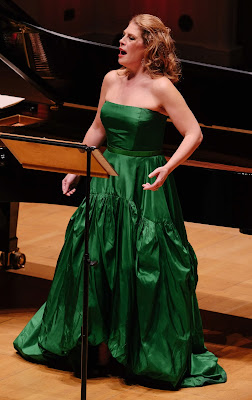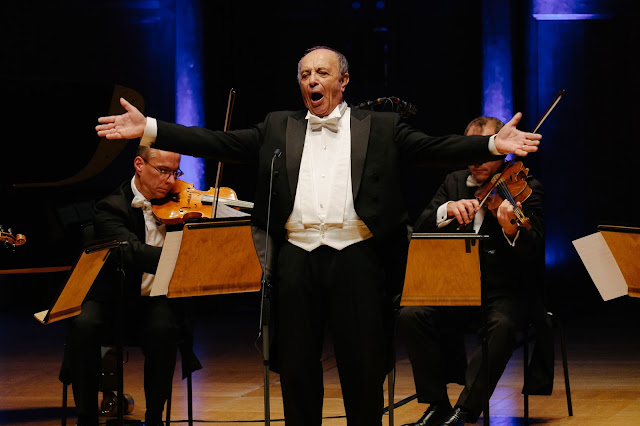 |
| Nahuel di Pierro (Photo Jonathan Rose) |
Reviewed by Ruth Hansford on Jun 5 2017
Star rating:
A young Argentinian bass provides the very last recital in this long running series
The recital by Nahuel Di Pierro and Alphonse Cemin for Rosenblatt Recitals at Wigmore Hall on 5 June 2017 was the end of an era for the celebrity (and future-celebrity) recitals devised and promoted since 2000 by opera-mad solicitor Ian Rosenblatt (interviewed by Robert here). There are two memorable things for me: one was my only ever lottery win was tickets to one of the early recitals. The other was in 2001 when Plácido Domingo rocked up and sat in the row in front of me at St John’s Smith Square; he was coming to listen to an up-and-coming Peruvian tenor called Juan Diego Flórez. I thought I’d better pay attention.
The last recital was the Argentinian bass Nahuel Di Pierro. He has as many bass-baritone roles on his CV as bass roles and, to my ear, at modern pitch, he did seem more at ease in the middle and top of the range than at the bottom.
The programme started with two punchy, bloodthirsty arias from Vivaldi’s Tito Manlio.

























.jpg)

.jpeg)





.jpeg)